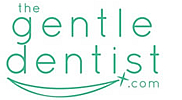According to the Oral Cancer Foundation Close to 36,000 Americans will be diagnosed with oral or pharyngeal cancer this year. It will cause over 8,000 deaths, killing roughly 1 person per hour, 24 hours per day. Of those 36,000 newly diagnosed individuals, only slightly more than half will be alive in 5 years. This is a number which has not significantly improved in decades. The death rate for oral cancer is higher than that of cancers which we hear about routinely such as cervical cancer, Hodgkin’s lymphoma, laryngeal cancer, cancer of the testes, and endocrine system cancers such as thyroid, or skin cancer (malignant melanoma).
It is obvious that it is a serious problem and one that can be treated more successfully if it is treated at an early enough stage. Early diagnosis is critical in the success but these cancers aren’t painful in the early stages. When they get symptomatic when the patient can notice them they have usually metastasised to the neck or lymph nodes. Your semiannual trip to the dentist is therefore critical since we do an oral cancer exam each time you are examined by Dr. Antolak.
Oral cancers are mostly found at the side and under the tongue. They usually appear as a red or white patch which is usually asymptomatic. If there is any sign of this a brush biopsy or biopsy can be taken which will determine if there is pathology.
Rapid and aggressive treatment is important including surgery to remove the involved area, radiation and chemo therapies. Radiation and chemotherapy kills off fast replicating cells. Cancer cells, saliva producing cells, hair follicles, and any other fast growing cells are killed off by the chemotherapy. Radiation therapy has an even more focused kill so if the saliva glands are in the path of radiation there is a significant reduction in the saliva. Since saliva provides moisture and natural protection against gum disease and cavities the mouth is prone to more decay. In addition the bone is prone to infection because the bone cells have a reduced capacity of healing.
It is critical to seek dental care immediately to remove and fill any teeth that could have problems after the cancer treatment is started. Dentures will have to be remade or relined to improve the fit. A poorly fitting denture can create ulcers in the mouth which will be difficult to heal after radiation therapy is completed.
One of my recent cancer-surviving patients told me that there was not been enough emphasis on the long term effects of radiation treatment on the teeth after the cancer treatment is done. She wanted it to be known to others how fast dental decay can occur once the saliva glands are irradiated.
If you have questions or need to know what your next step should be please email Dr. Antolak at DrAntolak@TheGentleDentist.com or call (586)247-3500.
Please remember our Candy Buy Back which takes place on November 2. We will be paying children $1.00 per pound of candy they turn in. The candy will be distributed to children in Haiti, Detroit and to the Men and Women in uniform serving our country overseas.
